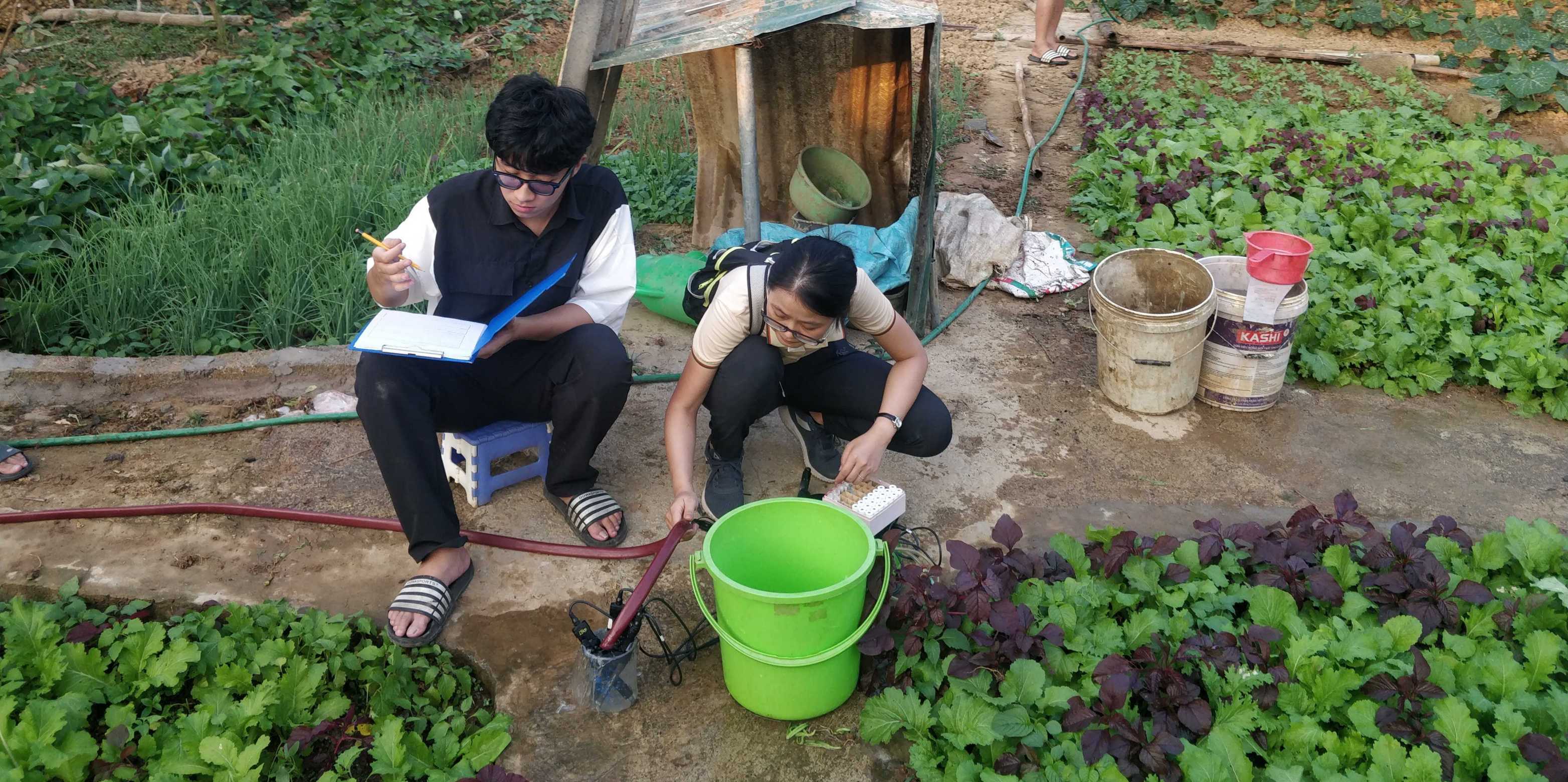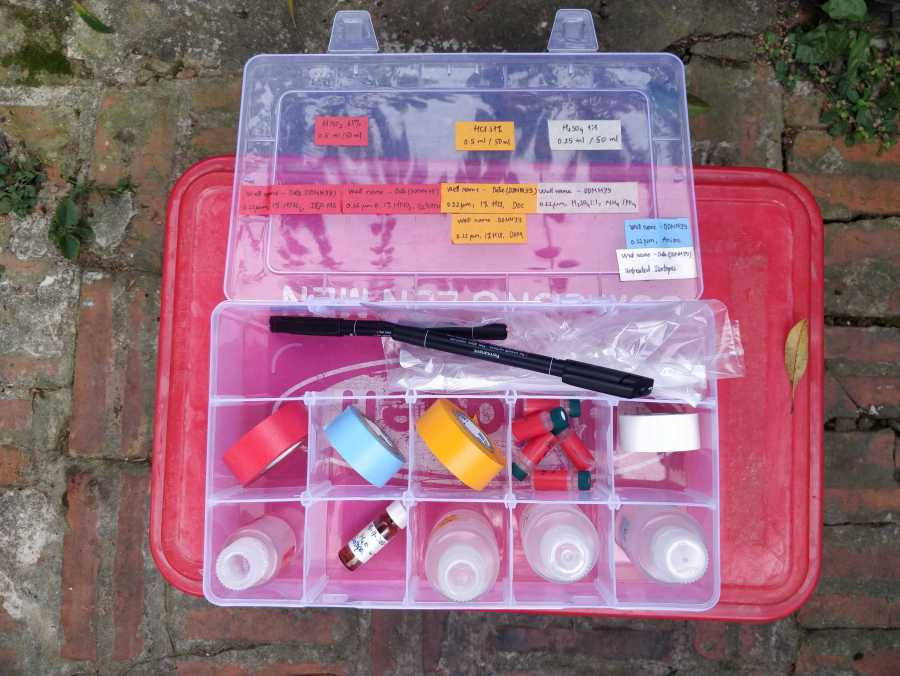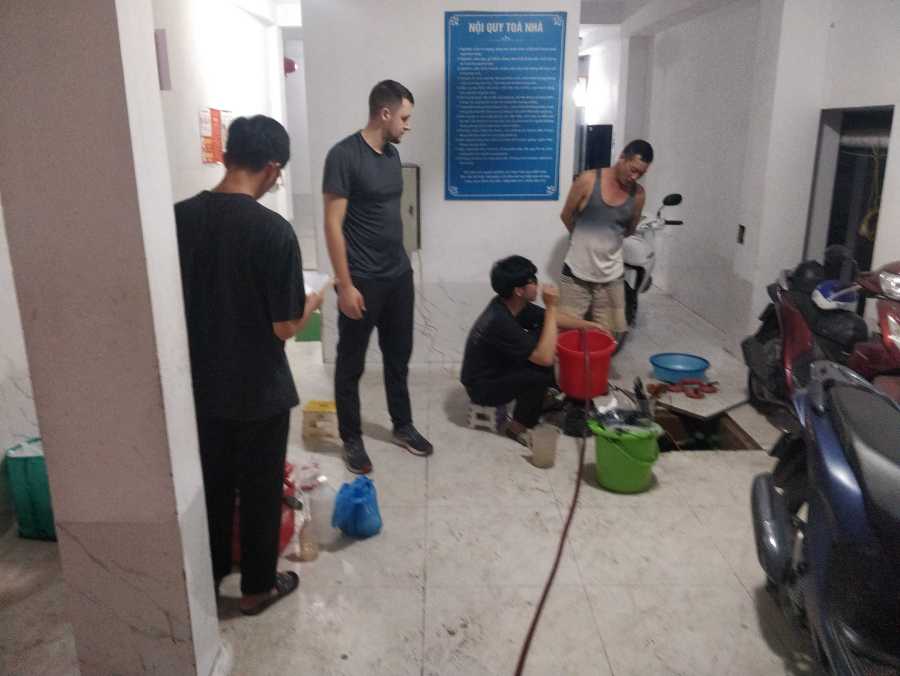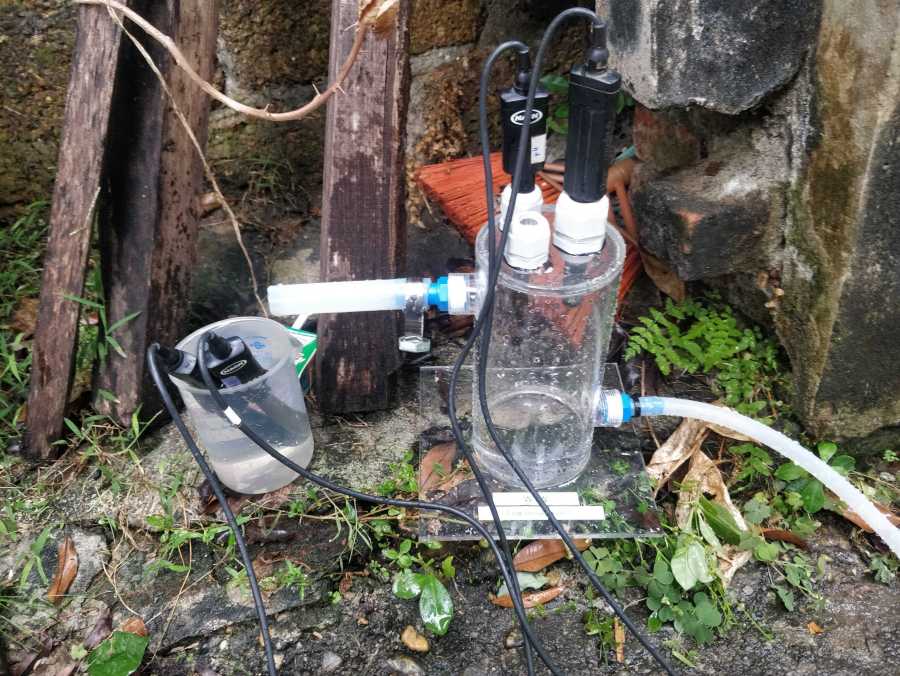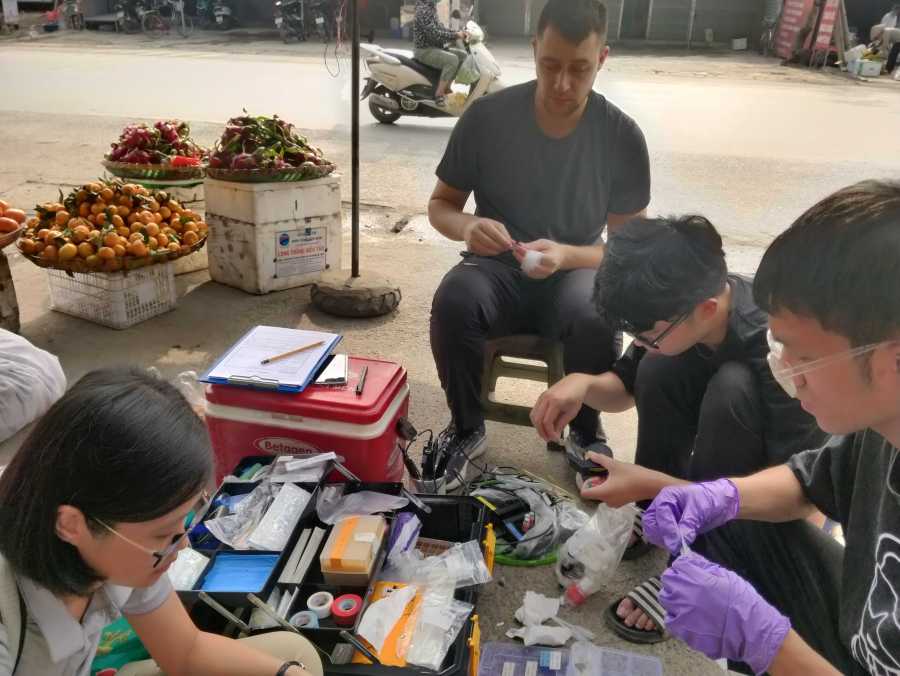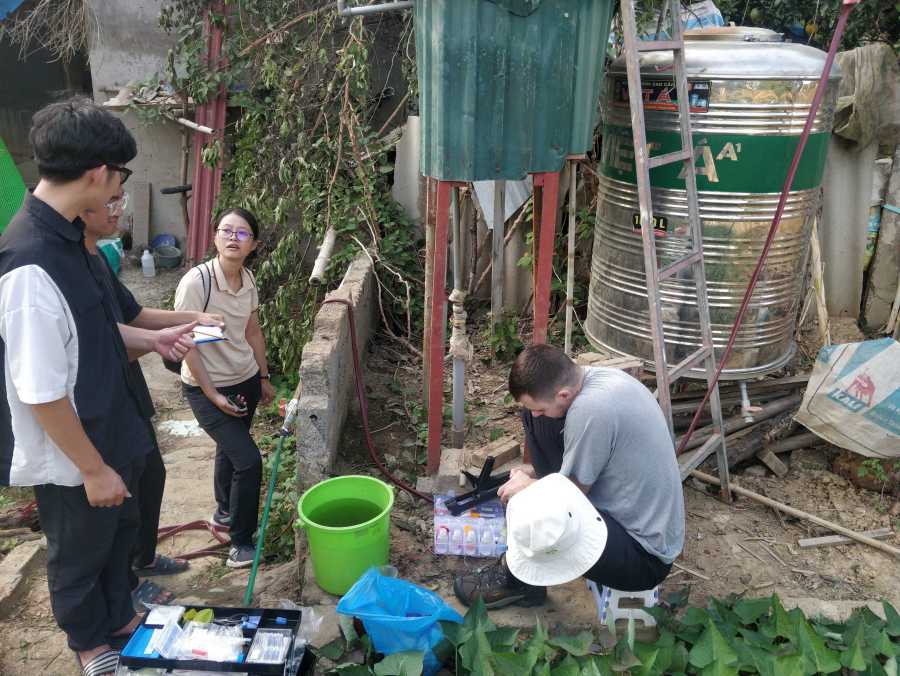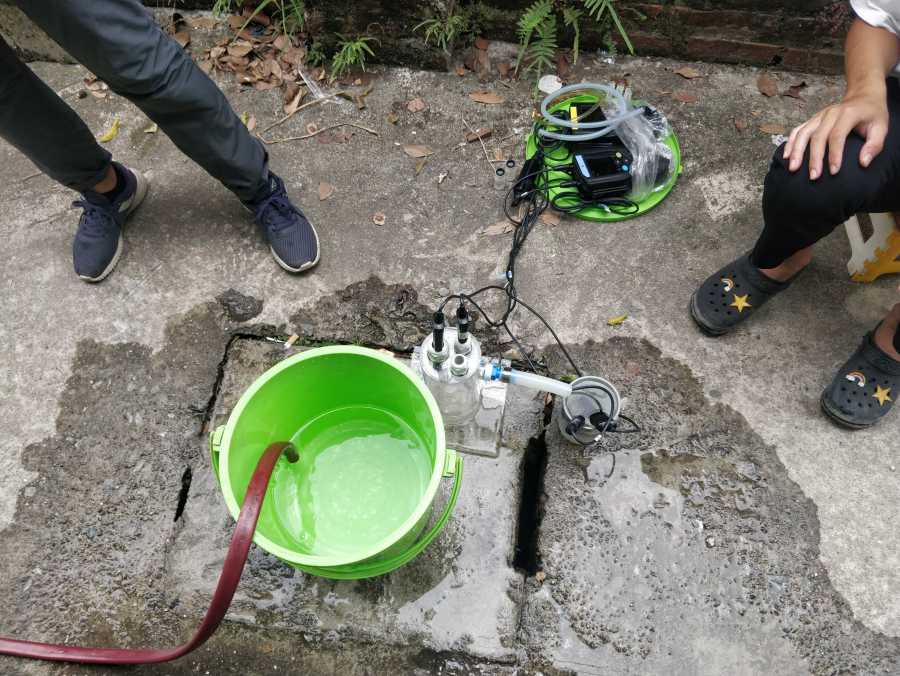Hanoi, Vietnam — After a brief three-day delay, the much-anticipated groundwater sampling campaign officially began in mid-November. A logistical hiccup involving a misdirected parcel of sampling equipment from Switzerland gave team members Jacob and Tobias an unexpected chance to explore Hanoi before embarking on an intensive schedule of fieldwork. The campaign, conducted in collaboration with local partners from Vietnam National University, aims to collect samples from approximately 500 wells across the Red River and Mekong deltas.
The primary objective is to revisit wells previously analyzed for arsenic concentrations and other hydrochemical parameters, providing a new time point for comparison with historical data. However, locating these wells - especially in rapidly urbanized areas - has proven to be a challenging and time-intensive task. Many older wells sampled two decades ago have been decommissioned or are no longer accessible. In such cases, substitute wells within a target radius of 10 to 100 meters will be identified to ensure comprehensive coverage.
The campaign is set to conclude by spring 2025. Even at this early stage, Eawag’s laboratory team is eagerly preparing to analyze the incoming water samples. These analyses will focus on trace elements, major anions, dissolved organic carbon, and nitrogen species. By combining this new dataset with historical records, researchers hope to build an unprecedented repository for assessing long-term trends in arsenic concentrations and other key hydrochemical variables in these critical regions.
The findings are expected to provide invaluable insights into temporal changes in groundwater quality, informing efforts to manage and protect these vital resources. The team extends its best wishes to all participants for the successful continuation of this ambitious project.
